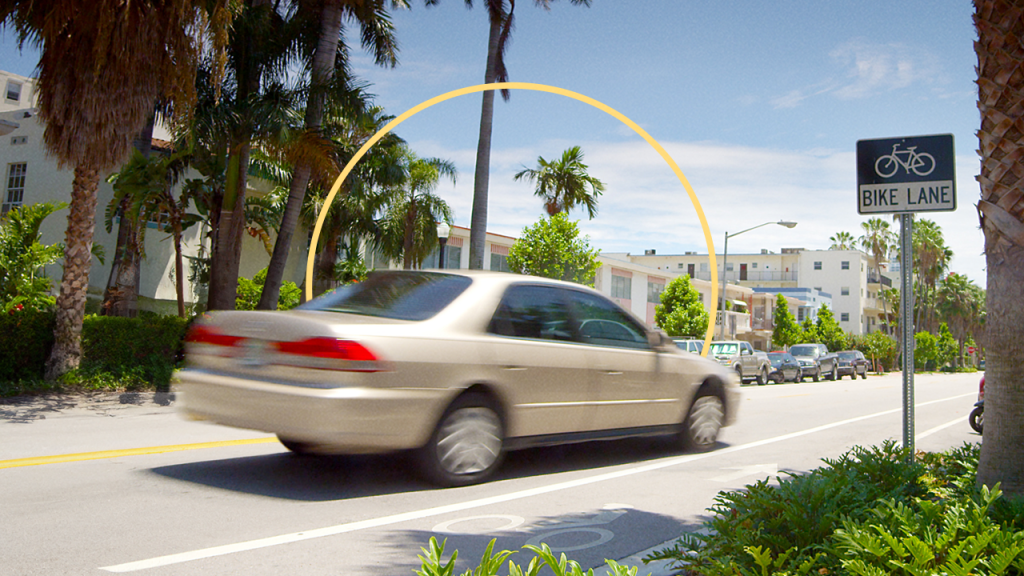FrankMirbach/Getty Images; Illustration by Issiah Davis/Bankrate
Drivers nationwide already pay more for car insurance every year, but drivers with speeding tickets typically pay much higher rates for the same coverage. Unfortunately, this means Florida drivers with speeding tickets might struggle to afford car insurance. To help you find cheaper coverage after a moving violation, Bankrate’s insurance editorial team explains how providers determine insurance rates and offers strategies for finding insurance coverage that won’t break the bank.
How much is a speeding ticket in Florida?
According to Florida Statutes, a speeding ticket can become increasingly more expensive depending on how fast you were driving above the posted limit — here’s a breakdown:
- 1-5 mph over limit: warning
- 6-9 mph over limit: $25
- 10-14 mph over limit: $100
- 15-19 mph over limit: $150
- 20-29 mph over limit: $175
- 30+ mph over limit: $250
In addition to these state fines for speeding, you may have to pay a local county surcharge or other administrative fees. However, even after submitting a payment for your speeding ticket, you could also face potentially drastic increases in your car insurance premium.
According to Quadrant Information Services, as of November 2024, Florida drivers with clean driving records pay on average $4,088 for full coverage per year and $1,125 for minimum coverage per year. After receiving one speeding ticket, Florida drivers may see their average annual costs inflate to $4,755 for full coverage and $1,344 for minimum coverage. That’s a 16 percent and 19 percent increase, respectively.
Lastly, most speeding tickets are worth three points against your Florida driving record. Driving more than 50 mph over the speed limit or engaging in reckless driving are both considered four-point violations. Accumulating 12 points within 12 months can result in a 30-day license suspension, with repeat offenders facing longer suspensions if they continue to earn traffic tickets in the near term.
The cheapest car insurance for Florida drivers with a speeding ticket
Your insurance provider has the right to raise your premium after receiving your first speeding ticket in Florida, as it may indicate a higher likelihood of you filing an accident claim in the future. However, you also have the right to compare quotes and switch to a provider that is more gracious toward your mistake. As of November 2024, these are some of the cheapest insurance providers on average after a speeding ticket in Florida:
| Company | Avg. full coverage rate before speeding ticket | Avg. full coverage rate after speeding ticket | % diff. from state average after speeding ticket |
|---|---|---|---|
| State Farm | $2,992 | $3,460 | 16% |
| Farmers | $3,843 | $4,143 | 8% |
| Geico | $4,147 | $5,410 | 30% |
What to do after a speeding ticket in Florida
While circumstances may vary, a typical speeding ticket in Florida can stay on your driving record for three years. You can always just pay your fine, deal with the insurance rate hike and move on with your life. However, you could also try these proactive strategies to potentially save money or improve your driving record faster.
Go to court
In Florida, you have 30 days after receiving your traffic ticket to decide whether to settle the fine or contest the citation in court. It could be worthwhile to appear in court if you believe the judge may reduce or dismiss your citation, but this all depends on your previous driving record and how fast you were driving above the speed limit. Before making this decision, it’s important to compare court costs with the cumulative cost of your speeding ticket fine and increased insurance premiums.
Complete a defensive driving course
A direct quote from the Florida Highway Safety and Motor Vehicles website states that “customers who receive a traffic citation may be eligible for an 18 percent reduction in citation fees, and points may be withheld if they take a driver improvement course.” You’ll likely still have to pay your speeding ticket fine, but cleaning your record by completing a driver improvement course could help you avoid an insurance rate hike entirely in Florida.
Commit to safe driving
Unfortunately, you may lose your car insurance discounts for safe driving after a speeding ticket. However, you may be able to earn back your reputation — and your savings — using a telematics program if your insurance provider offers one. These GPS programs track your driving habits, enabling providers to reduce your rate based on your consistent ability to avoid dangerous situations and practice safe maneuvers. Using these programs to prove that you drive a minimal amount of miles every month might be another way to lower insurance costs.
Adjust your insurance policy
If you choose to stick with your current insurance provider through the rate hike, you could also provide some relief for your budget by making a few adjustments to your policy. While raising your deductible and dropping optional coverage does mean you’re assuming more financial risk in an accident, these adjustments will generally lower your premium. If that sounds a bit too risky for your liking, you could also seek out non-performance-related car insurance discounts, such as policy bundling, paperless billing and paying in full.
Frequently asked questions
Methodology
Bankrate utilizes Quadrant Information Services to analyze November 2024 rates for all ZIP codes and carriers in all 50 states and Washington, D.C. Rates are weighted based on the population density in each geographic region. Quoted rates are based on a single, 40-year-old male and female driver with a clean driving record, good credit and the following full coverage limits:
- $100,000 bodily injury liability per person
- $300,000 bodily injury liability per accident
- $50,000 property damage liability per accident
- $100,000 uninsured motorist bodily injury per person
- $300,000 uninsured motorist bodily injury per accident
- $500 collision deductible
- $500 comprehensive deductible
To determine minimum coverage limits, Bankrate used minimum coverage that meets each state’s requirements. Our base profile drivers own a 2022 Toyota Camry, commute five days a week and drive 12,000 miles annually.
These are sample rates and should only be used for comparative purposes.
Incidents: Rates were calculated by evaluating our base profile with the following incidents applied: clean record (base) and single speeding ticket.
Read the full article here










